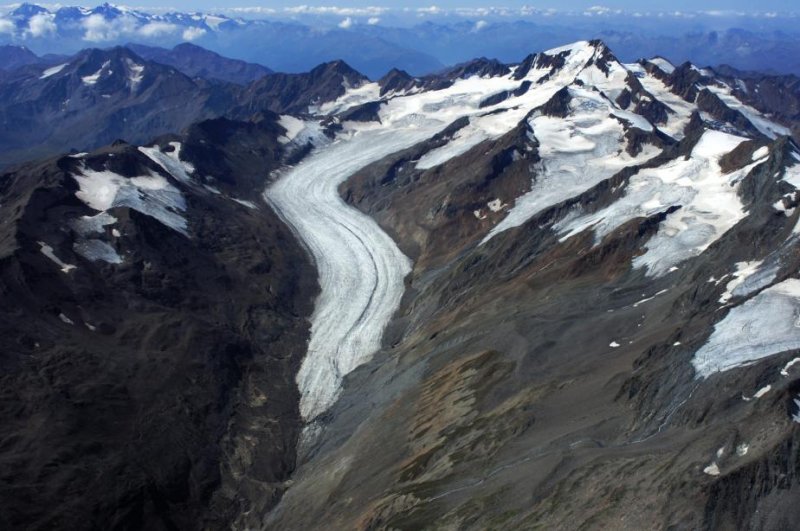The world's glaciers are guaranteed to continue melting through the end of the century. Photo by University of Innsbruck
March 19 (UPI) -- Even if carbon emissions are halted tomorrow, significant glacial mass loss is in the cards for planet Earth.
When researchers in Austria and Germany modeled the impact of climate change mitigation efforts of glacial melting rates around the world, they found policy changes and emissions reductions are likely to have a limited influence on glacial mass loss.
"In our calculations, we took into account all glaciers worldwide -- without the Antarctic and Greenland ice sheets and peripheral glaciers -- and modeled them in various climate scenarios," Georg Kaser, a climate scientist at the University of Innsbruck in Austria, said in a news release.
Glaciers are slow to react to climate change, a variety of studies have shown. In other words, the most recent warming trends -- last year's record high temps, for example -- aren't necessarily to blame for the ongoing destabilization of ice sheets and the melting of glaciers around the world. Ice loss has been baked into the planet's climate system over the course of the last century -- a century marked by gradual warming. Even if that warming ends tomorrow, a significant amount of damage has already been conscripted.
"Around 36 percent of the ice still stored in glaciers today would melt even without further emissions of greenhouse gases," said Ben Marzeion, of the Institute of Geography at the University of Bremen. "That means: more than a third of the glacier ice that still exists today in mountain glaciers can no longer be saved even with the most ambitious measures."
That doesn't mean emissions reductions are fruitless. Many studies have shown ice losses and sea level rise will be much less dramatic and destructive if global warming is limited to 1.5 degrees Celsius instead of 2 degrees Celsius.
In fact, the latest research -- published this week in the journal Nature Climate Change -- emphasizes the long-term effects of today's policy decisions.
"Our current behavior has an impact on the long-term evolution of the glaciers -- we should be aware of this," said Kaser.















